Courage Vs Bravery: How Are They Different?
By Julian Lewis • July 16, 2023
Key Takeaways
- Courage and bravery, while similar, have key differences.
- Both traits play significant roles in personal life, work, and societal issues.
- Mindfulness and mental fitness foster courage and bravery.
- We can consciously develop both bravery and courage.
- Everyone has the potential to be courageous and brave.
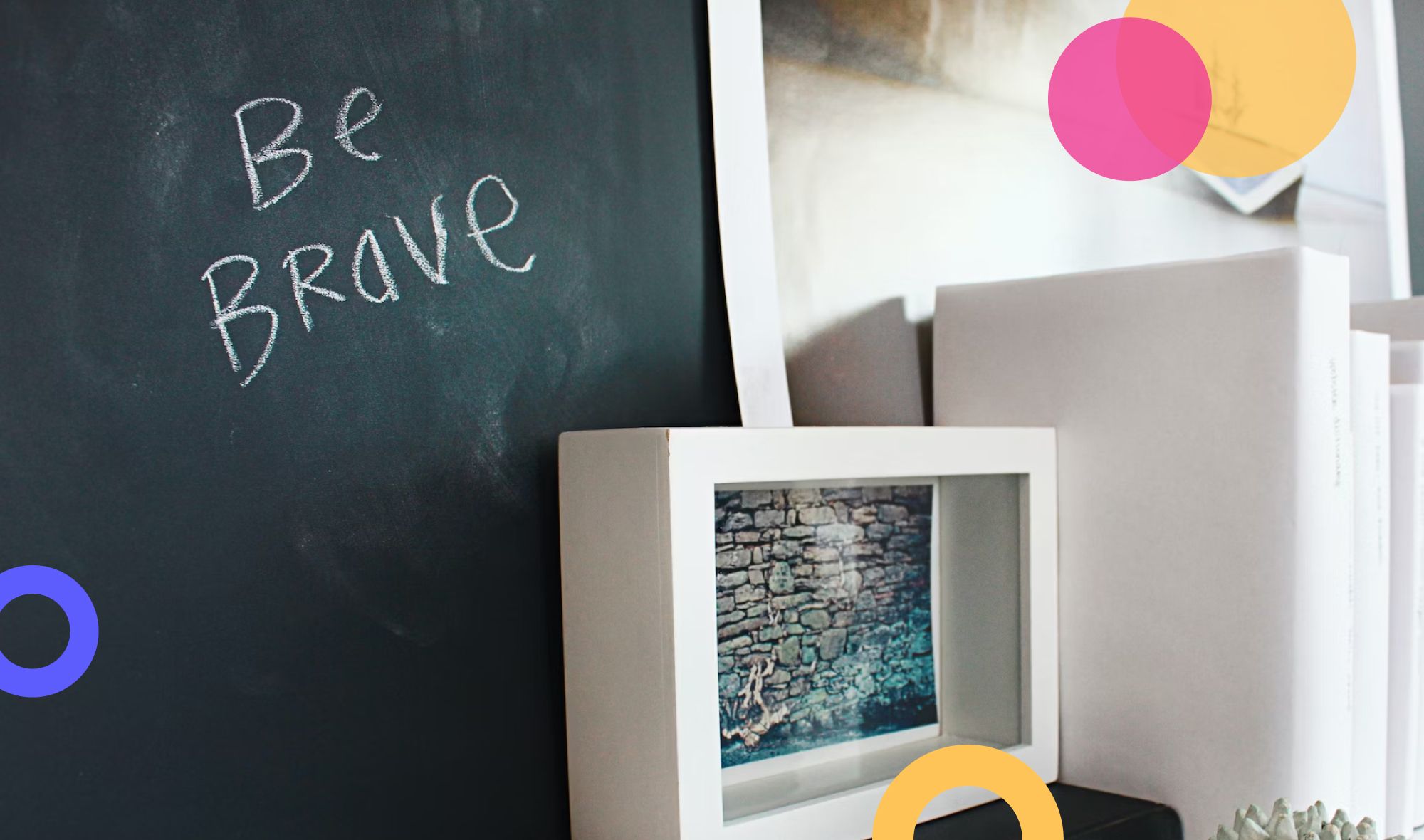
Are you a lionhearted hero performing courageous acts, or are you a gallant knight showcasing your bravery in the face of adversity? These two words - courage and bravery - often find themselves used interchangeably in our everyday language, yet they hold unique meanings that separate one from the other. As we delve into the exploration of "courage vs. bravery", you'll discover that these key distinctions go beyond their textbook definitions, deeply rooted in our mental state and even our everyday actions at the workplace.
We've all experienced moments where our hearts pound with the drumbeat of fear, yet we make the choice to stand firm. Is this an act of courage, or is it an exhibition of bravery? Join us on a journey of understanding the nuanced differences between these two virtuous emotions and how they profoundly influence our lives from the corporate boardroom to our personal relationships.
Throughout the rest of this blog post, we will draw back the curtain on the true meaning of these complex characteristics. You'll learn not only the definition of bravery and the definition of courage, but also how to cultivate these traits within yourself, developing bravery and encouraging courageous acts in your own life. Whether it's taking a stand against discrimination, fighting procrastination at work, or simply making a conscious, mindful choice in your daily life, we're here to guide you on this empowering journey.
Stay tuned, and prepare to unravel the key differences between these closely related yet distinctly unique concepts. Let's embark on this enlightening adventure and together, let's elevate our understanding of bravery and courage and how we can harness their power in our lives. Welcome to the brave new world of courage!
Join our Newsletter
Transform your career with our personal growth insights. Get one valuable tip right in your inbox every Saturday morning.
Understanding Courage
To start our journey, let's begin by addressing the fundamental question: what is the definition of courage? The Oxford Dictionary defines courage as the ability to do something that frightens one, or strength in the face of pain or grief. However, as is often the case with such deeply human characteristics, this brief definition can scarcely cover the full scope of what it means to truly embody courage.
Courage, or "def of courage" for those seeking its roots, is deeply intertwined with the idea of taking action despite fear. This is a cornerstone in understanding the courageous meaning. It involves a personal choice, a volitional act that isn't necessarily driven by external circumstances but by internal fortitude. It is about having the heart to face adversity head-on and yet, it's more than simply standing up to fear.
For example, consider a situation where an employee takes the initiative to propose a new idea in a corporate boardroom full of senior executives. This act requires courage because the employee risks potential criticism or rejection. Yet, they make the choice to voice their idea, facing their fear of judgment head-on.
Courage can also be seen in the stand taken by individuals against harassment or discrimination in the workplace. By raising their voice, they show courage in its purest form, embodying the very essence of courageous acts.
To better understand the concept of courage and how it can lead to happiness and self-improvement, The Courage to Be Disliked, is a recommended read. This book delves into the intricacies of courage, exploring how individuals can break free from the shackles of past experiences and societal expectations to achieve real happiness.
Understanding Bravery
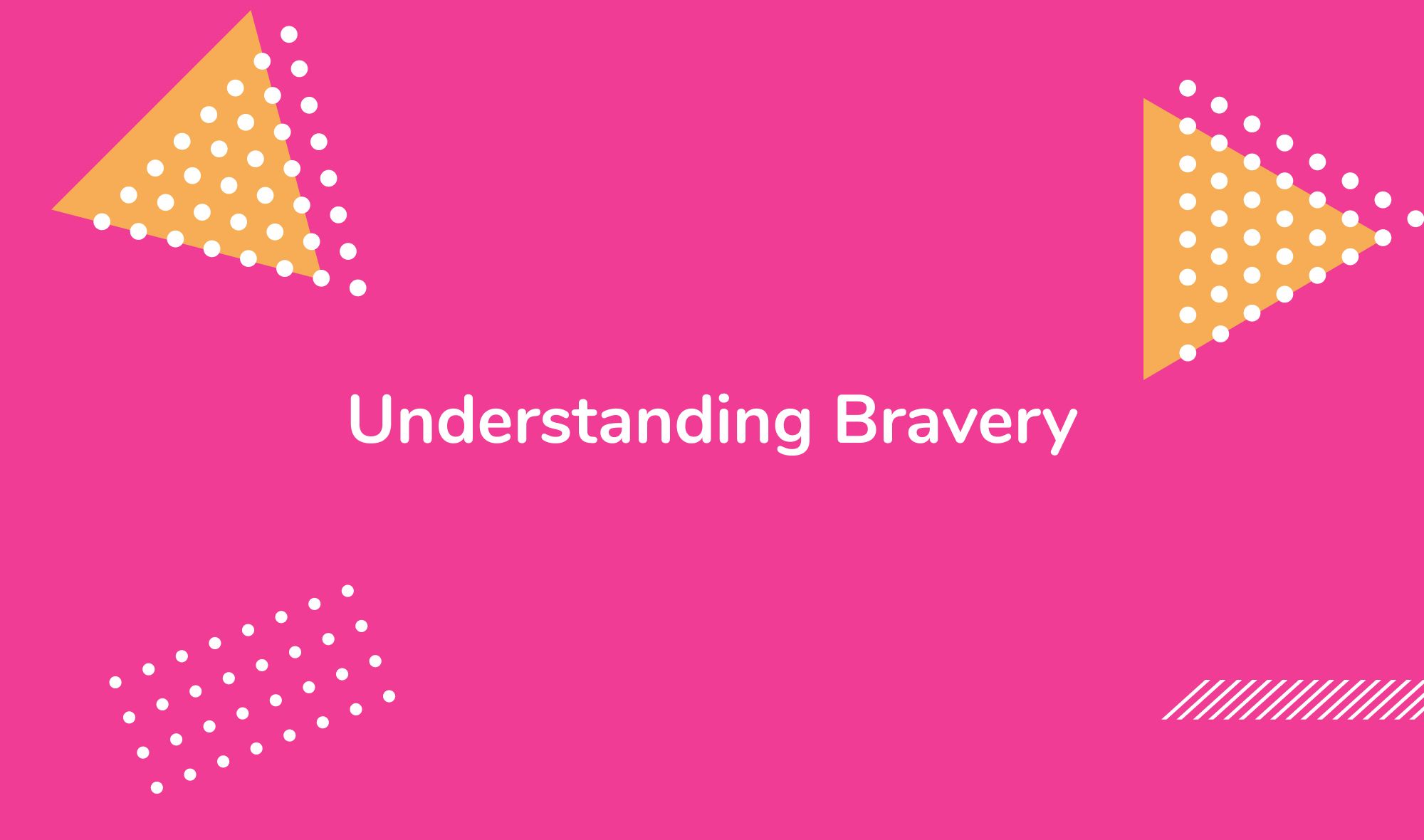
Now, let's delve into the concept of bravery. The definition of bravery is often misconstrued as identical to courage, yet they have their unique attributes. The Oxford Dictionary defines bravery as "courageous behavior or character." At face value, this seems quite similar to the definition of courage, and it's easy to see why the two are often confused. However, the brave meaning has its distinct essence.
In contrast to courage, bravery is often considered to be an act of boldness, primarily in the face of physically challenging circumstances or threats. It's about facing danger, standing up against overwhelming odds, and not backing down. Bravery is considered more spontaneous, an instinctual response to a challenging situation.
For instance, consider a firefighter entering a burning building to save those trapped inside, or a soldier standing their ground in the heat of battle. These are clear examples of bravery - immediate responses to dangerous situations where boldness and determination overpower fear.
To delve deeper into the heart of bravery, The Courage Calling: Fortune Favors the Brave is a must-read. It presents an exploration of bravery from different aspects, giving readers an in-depth understanding of this heroic trait.
In the upcoming sections, we will delve into a detailed comparison of courage vs. bravery, discussing their key differences and applications, particularly in the context of the workplace. Let's journey together into this fascinating exploration of these two commendable virtues.
Courage Vs. Bravery: Key Distinctions
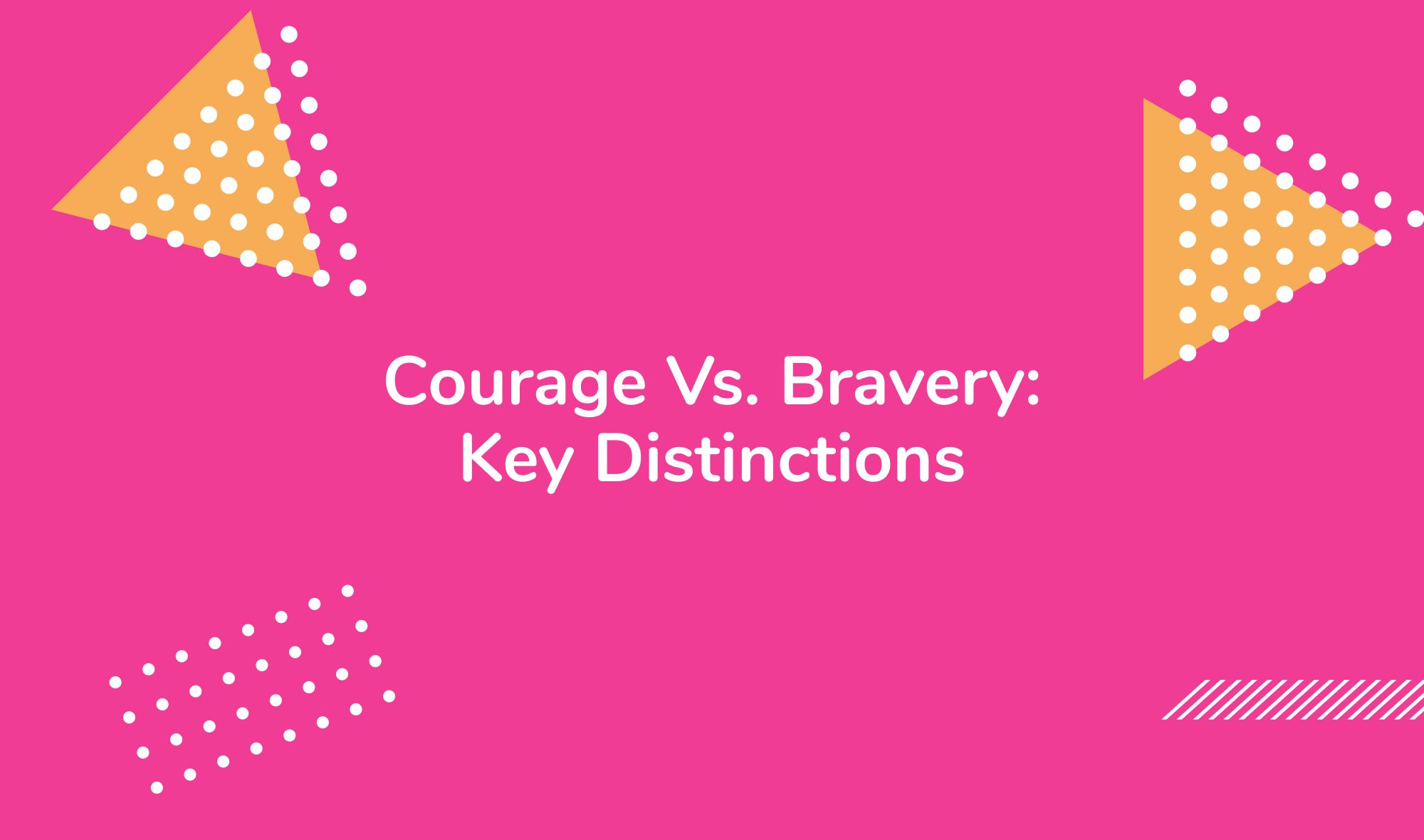
In delving into the comparison of courage vs. bravery, it becomes clear that they diverge in some key aspects. These differences lie largely in the motivation, purpose, and psychological basis of the two attributes.
Bravery can be viewed as a physical act, often a reflexive response to immediate danger. It doesn't always require deliberation or reflection; it's more a show of boldness or fearlessness in the face of danger or adversity.
Courage, on the other hand, can often involve the strength to face not just physical danger, but emotional or moral challenges as well. It is about standing up for one's beliefs, speaking out against injustice, or facing a personal fear. Courage often requires a conscious choice and a sense of forethought.
Join our Newsletter
Transform your career with our personal growth insights. Get one valuable tip right in your inbox every Saturday morning.
A significant factor in these distinctions is the mental state of the individual. Bravery often manifests in high-adrenaline situations where there's little time for contemplation. It's the instinctual response of the 'fight or flight' mechanism.
In contrast, courage is more likely to emerge in a state of mindfulness, where the individual is consciously aware of their actions and choices. It's not about a lack of fear, but choosing to act despite that fear because it aligns with one's values or a higher set of ideals. Courage often requires a mental journey, from acknowledging fear to taking a stand against it.
To better understand this interaction of our mental state with our ability to display courage or bravery, you can visit our article on Self-Awareness. This resource will provide you with deeper insights into the psychological mechanisms that influence our virtues and actions.
Courage and Bravery in the Workplace
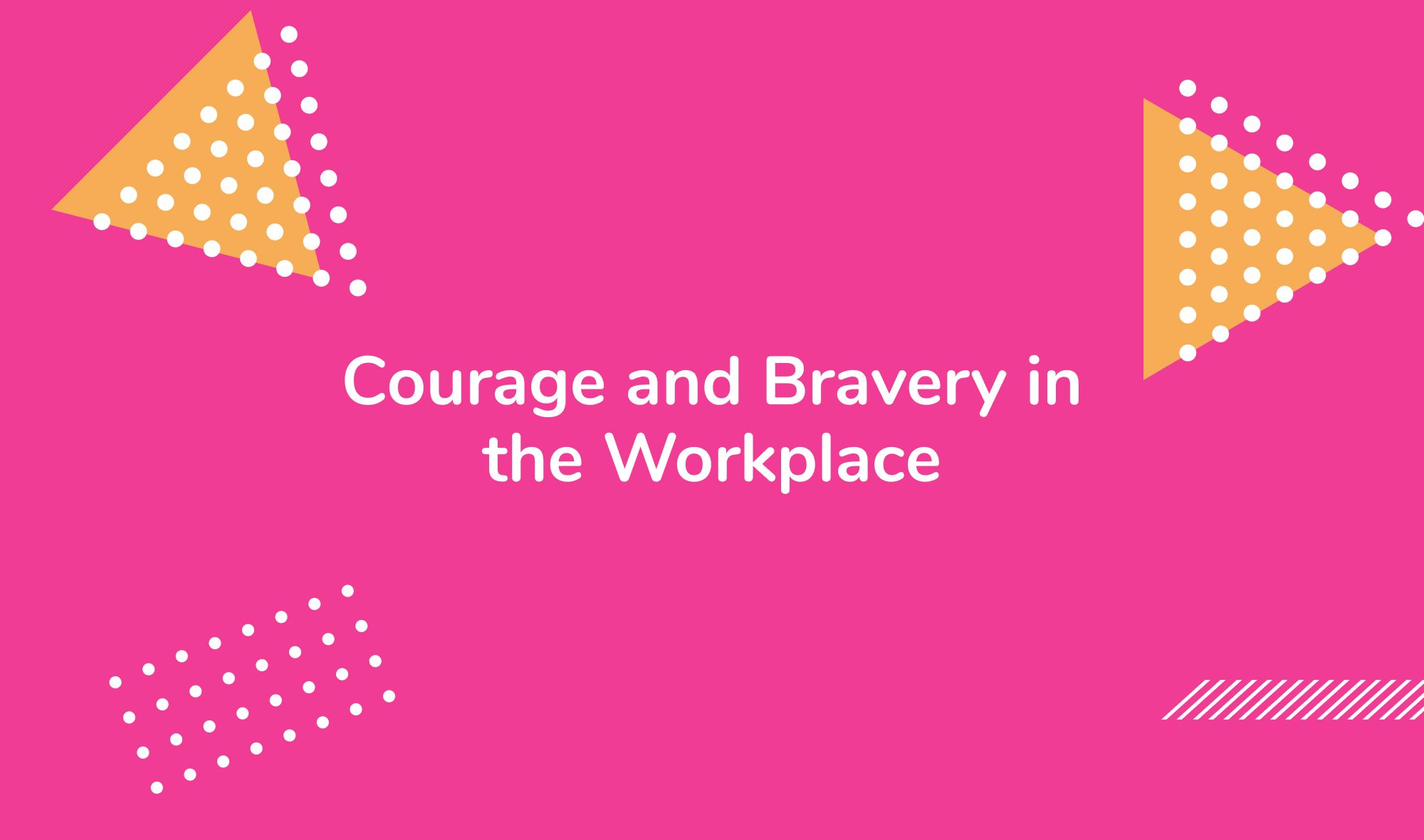
When we talk about bravery at work, it usually involves standing up for what you believe is right, even in the face of potential backlash or disagreement. It could be a situation where an employee speaks up about a discriminatory practice or takes the initiative to challenge the status quo in a meeting. Bravery in the office may be as simple as expressing a dissenting opinion or as complex as whistleblowing on unethical corporate behavior.
But courage in the workplace often goes beyond these spontaneous acts. Courage often manifests in decision-making, where leaders must make tough choices for the good of the organization, even when these choices are unpopular. Courage in the corporate boardroom involves sticking to one's principles and ethical standards even when they're put to the test.
For instance, a manager might display courage by deciding to invest in long-term growth strategies that may not deliver immediate results, but align with the organization's mission and values. Or an employee might demonstrate courage by taking on challenging projects outside of their comfort zone to facilitate personal growth and contribute to the team's objectives.
Courage and bravery are both critical for effective leadership. Courageous leaders are not afraid to make tough decisions, take risks, and act in accordance with their values and beliefs, even when faced with opposition. They have the ability to take calculated risks, which can lead to innovative solutions and improved outcomes for the organization.
Moreover, courage and bravery can unlock employee resilience, fostering an environment that encourages personal growth and the development of mental fitness. It paves the way for an open dialogue, constructive conflict, and the cultivation of a culture of engagement that respects each individual's contributions and values their unique perspectives.
The Role of Moral Courage and Bravery in Addressing Discrimination and Harassment
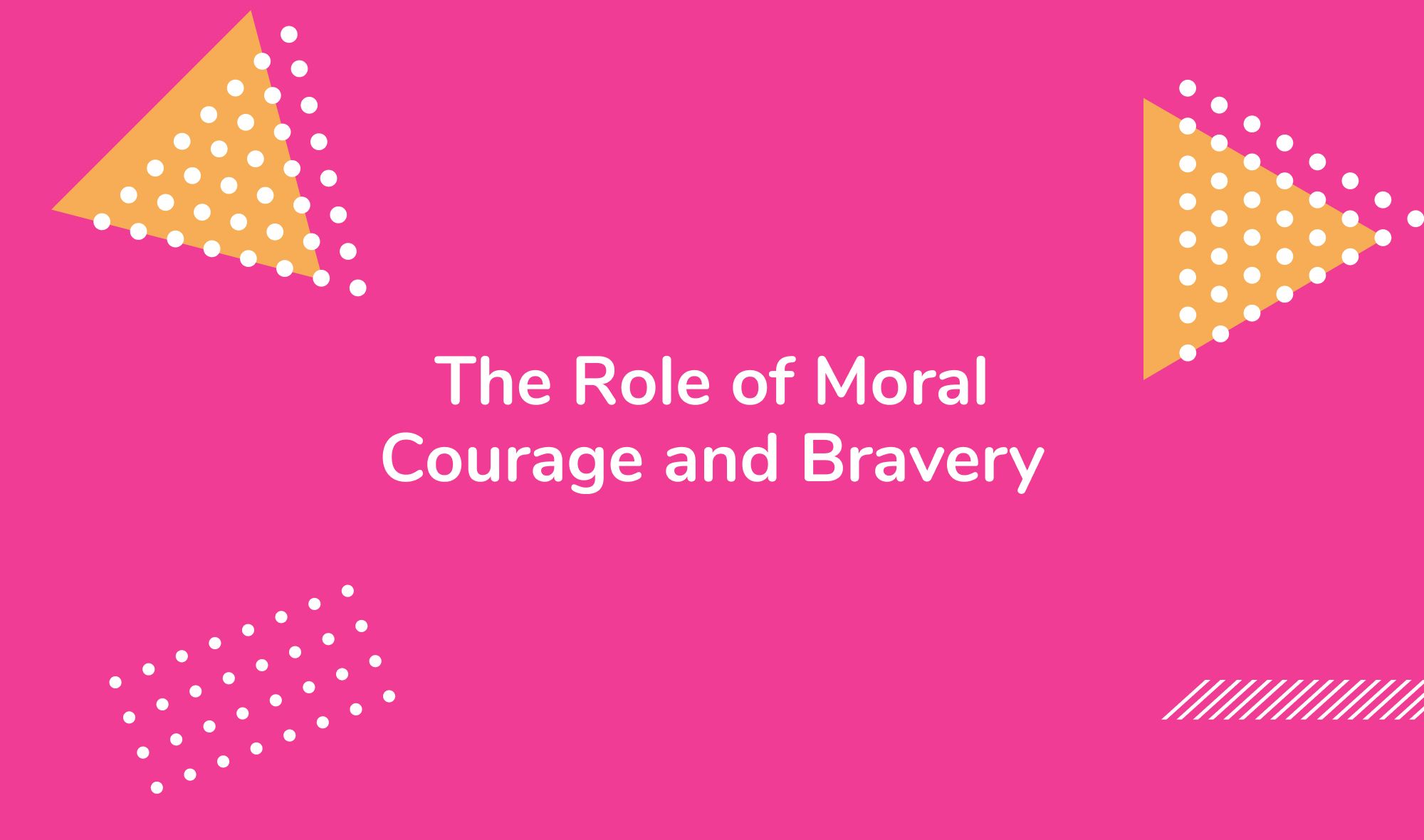
When we examine the concept of moral courage, we're talking about a special kind of bravery - a type that compels us to stand up against wrongdoing and defend ethical principles, even when it's uncomfortable or difficult to do so. In essence, moral courage is the willingness to face not just physical threats but also social, psychological, or moral challenges, risks, or pressures.
In environments like workplaces, where social dynamics are in constant play, moral courage becomes an invaluable asset. It's the force that drives individuals to combat discrimination and harassment. Discrimination and harassment, unfortunately, still persist in many corporate environments, damaging the mental health and well-being of those subjected to such treatment.
A person with moral courage will not stand idle in the face of such unfair practices. They will take a stand, speak out, and take action to defend their peers or themselves. This could mean reporting inappropriate behavior, supporting a colleague who has been unfairly treated, or leading initiatives to promote equality and inclusivity in the office.
Taking a stand against discrimination or harassment requires not just strength, but also a deep-rooted belief in justice and equality. It requires individuals to put their reputations on the line and sometimes risk professional relationships for the sake of doing what's right. But the reward is a more equitable, respectful, and psychologically safe working environment where every individual feels valued and heard.
To explore this further, I recommend reading our article on Constructive Conflict. This piece explores how moral courage can help transform conflict into an opportunity for growth and positive change.
Mindfulness, Mental Fitness and Courage/Bravery
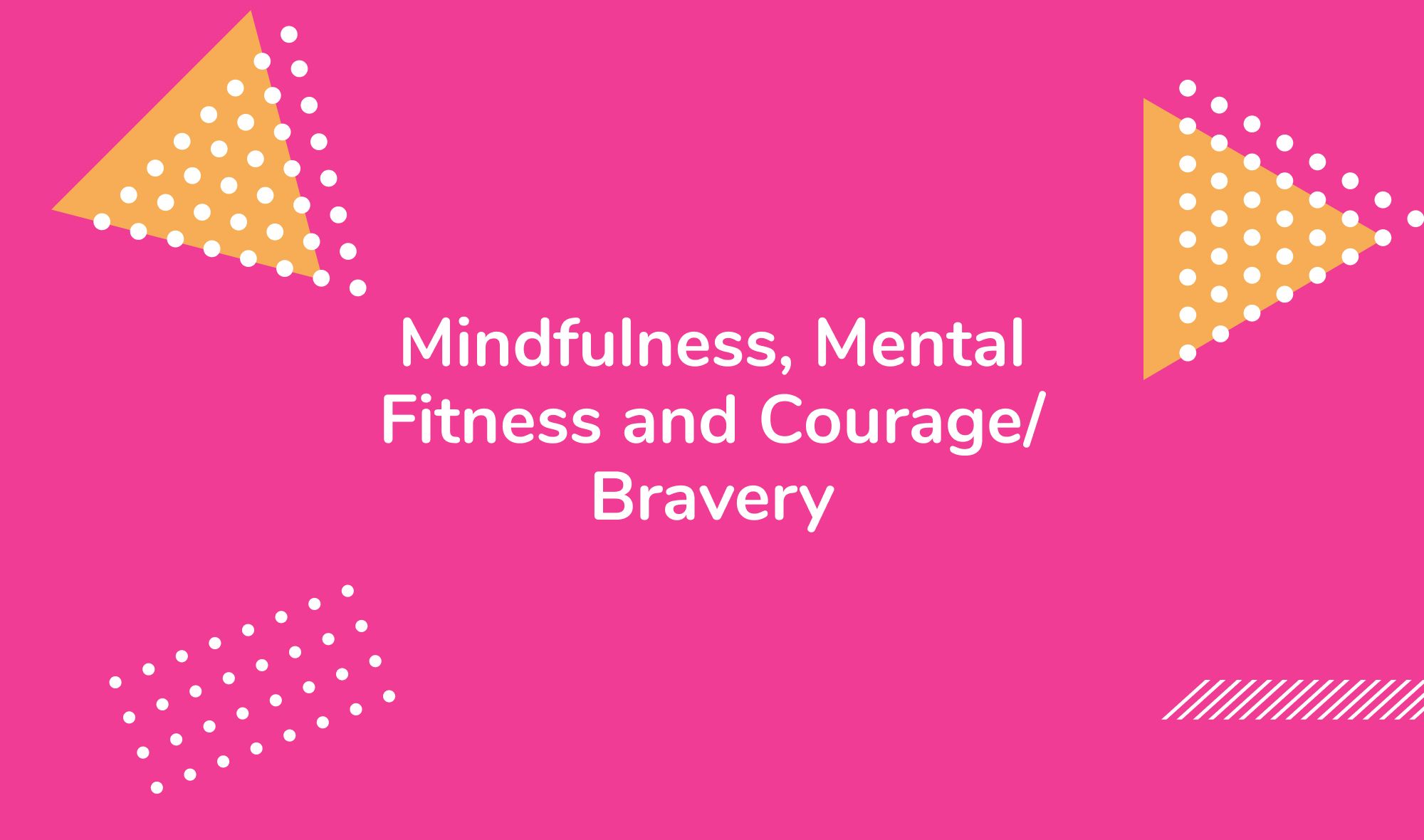
Understanding the power of the mind can make a significant difference when cultivating bravery and courage. One of the key factors in this equation is mindfulness - the practice of being present and conscious of our thoughts, emotions, and actions in the moment.
The importance of mindfulness cannot be overstated. It is through mindfulness that we can make mindful choices, understand our emotions, and react with intention rather than impulsivity. For instance, when confronted with a situation that requires courage or bravery, being mindful allows us to calmly assess the situation, understand our fear, and make a conscious choice to act despite that fear.
This kind of self-awareness is intrinsically linked to the development of courage and bravery. It's about understanding our emotional responses and using that understanding to direct our actions consciously. Whether that's standing up against an injustice or facing a personal fear, mindfulness creates the mental space necessary for courage and bravery to emerge.
Parallel to mindfulness, mental fitness also plays a significant role in fostering these virtues. Much like physical fitness refers to the health and well-being of the body, mental fitness relates to the strength and resilience of our minds. Mental fitness can be developed through practices like mindfulness, meditation, cognitive exercises, and maintaining a balanced lifestyle. A mentally fit individual can better manage stress, handle adversity, and step out of their comfort zone – all of which are fundamental to displaying courage and bravery.
I encourage you to read The Mountain is You: Transforming Self-Sabotage Into Self-Mastery, a fantastic resource that elaborates on this interplay of mindfulness, mental fitness, and personal transformation. To dive deeper on this you can check out How to become a mindful leader.
Developing Bravery and Courage: A Path to Living with Confidence and Discovering Strengths

At the heart of personal growth is the development of bravery and courage. While these might seem like inherent traits, they can indeed be nurtured and cultivated with conscious effort and practice.
Developing bravery begins by understanding and facing our fears. Bravery isn't the absence of fear but rather the willingness to take action despite fear. Begin by identifying situations that provoke fear or discomfort in you. Then, take small, calculated steps to face these fears. You may experience failure or setbacks along the way, but remember, each step is a learning opportunity that helps build resilience and bravery.
Meanwhile, building courage involves being steadfast in the face of adversity and taking risks, guided by our core values and beliefs. The definition of courage extends beyond fear and risk-taking to include the steadfastness of heart in challenging situations. Courage often involves making tough decisions and standing up for what we believe is right, even when it's unpopular or uncomfortable.
As you cultivate bravery and courage, you'll discover that they can boost your confidence, help uncover your hidden strengths, and enhance your overall life experience. Fear and discomfort will no longer be barriers, but stepping stones towards personal and professional growth.
Conclusion
In our exploration of courage vs bravery, we've discovered that these two powerful concepts, while seemingly similar, carry distinct nuances. Courage involves a conscious decision to act despite fear, often driven by a commitment to moral or virtuous values. On the other hand, bravery is an immediate response to a situation, usually characterized by an absence of fear.
The threads of these virtues weave themselves into various aspects of our lives, influencing how we navigate personal challenges, workplace situations, and societal issues like discrimination and harassment. Through the development of these traits, we empower ourselves to take action, lead with integrity, and drive meaningful change.
Moreover, the practice of mindfulness and commitment to mental fitness are critical in cultivating courage and bravery. Being present, aware, and mentally strong equips us with the ability to respond effectively to our fears and challenges, thereby fostering these virtues.
In a world that often demands us to be fearless and bold, it's important to remember that the journey to bravery and courage starts with small steps. Whether it's standing up against unfair practices at work or confronting personal fears, every act of courage or display of bravery contributes to personal growth and, ultimately, a more courageous society.
Expressing gratitude is also an act of courage and bravery, as it often involves vulnerability and sincerity.
Lastly, we invite you to continue exploring these topics and apply them to your own life. As you venture forward, remember this: courage and bravery are not just traits of the extraordinary few; they are capabilities within us all, waiting to be awakened.
Read more about: Professional Development, Life Coaching
About Julian Lewis
Julian Lewis is a driven and accomplished professional with a passion for driving positive change in the business world. He is the co-founder and COO at Zella Life.
His own experience as a professional of color in a Fortune 500 company led him to discover the limitations for advancement that many professionals like himself face. Determined to reach his full potential, Julian became an established business coach and entrepreneur, committed to supporting others in their pursuit of personal and professional growth.
Today, Julian is a recognized corporate trainer, coach, and leader, known for his ability to leverage real-life experiences and evidence-based methodologies to affect positive change within individuals and organizations. As the leader of Zella Life's coaching division, he is dedicated to empowering individuals and businesses to achieve their full potential.